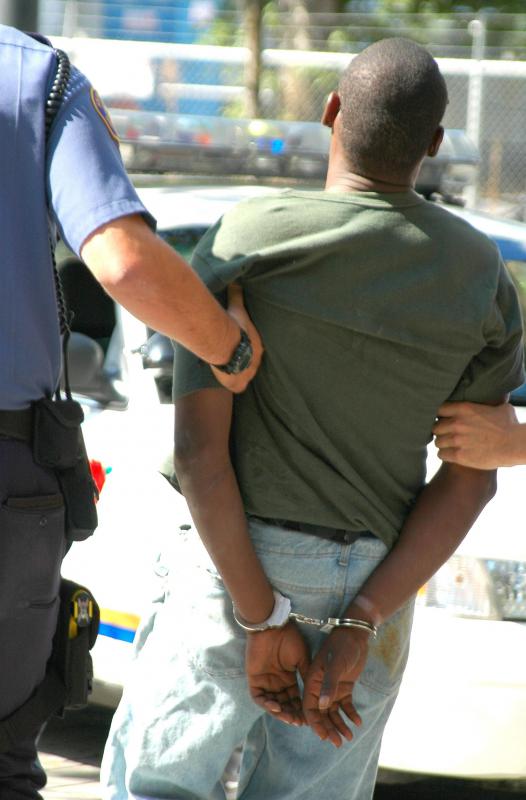At WiseGEEK, we're committed to delivering accurate, trustworthy information. Our expert-authored content is rigorously fact-checked and sourced from credible authorities. Discover how we uphold the highest standards in providing you with reliable knowledge.
What Are the Signs of Racial Profiling?
Racial profiling, or using race as a deciding factor in performing law enforcement activities, is a divisive issue in many regions. Due to strong pubic opinions and the potential illegality of the practice in some cases, recognizing signs of racial profiling could prove important. Signs may include unprofessional behavior from the officer, like an aggressive or otherwise uncomfortable demeanor. Certain actions may also suggest a link between law enforcement and race discrimination, such as baseless searches or questionable surveillance practices targeted at a specific group. In some cases, a law enforcement official may demand a suspect's immigration status.
Definitions and statutes of racial profiling can vary. Some consider the practice to be in use only when race or ethnicity is the sole factor for an officer of the law to engage a potential suspect. Others view any potential race and ethnicity influences as racial profiling, regardless of whether additional factors are also taken under consideration. While many regions require law enforcement personnel to report any suspected cases, others may dismiss claims based on the difficulty of proving the claims. A few regions also allow racial profiling, arguing that it is a useful crime-fighting tool and that certain populations or certain minority-heavy areas do have higher associations with certain crimes.

One of the primary indicators of racial profiling occurs when an individuals has an encounter with law enforcement in the absence of any suspicious behavior. If the officer cannot provide a valid reason for approach, this may be a red flag. Aggressive questioning may follow.
An official’s demeanor may also indicate use of a racial profile. An officer should not react in an angry or uncomfortable manner unless the suspect becomes angry or acts suspicious. Unprofessional behavior could include racial slurs, unnecessary use of physical force, or an improper search of property or person. Further, officers should not be overly interested in an individual’s manner of dress or hairstyle. Such actions may signal that the officer is attempting to conform the potential suspect to a preset stereotype.

Some professionals may practice more subtle forms of racial discrimination. For example, cases have been reported of airline officials advising individuals not to take a flight because the individuals might make other passengers uncomfortable. A similar scenario might take place if a racial minority visits a neighborhood populated by a racial majority.
A few regions have drawn criticism for targeting potential illegal immigrants in routine law enforcement activities as well. An officer may ask for proof of immigration status upon a traffic stop, for example. Law enforcement may even potentially detain an individual in jail for an action that would typically only require a ticket. If immigration questions consistently arise during this type of situation, racial profiling may be in practice.
Surveillance actions may also be influenced by suspicion based on race. Many have condemned the United States Patriot Act due to law enforcement’s alleged secret monitoring of individuals of Arab descent. Other groups could be targeted in similar scenarios via phone tapping and computer monitoring.
The potential violation of personal rights is perhaps the biggest consequence of racial profiling. Various organizations and theories exist that seek to put a stop to racial profiling, to varying degrees of success. One popular suggested alternative is predictive profiling, which emphasizes a suspect's behaviors rather than biological characteristics.
AS FEATURED ON:
AS FEATURED ON:












Discuss this Article
Post your comments